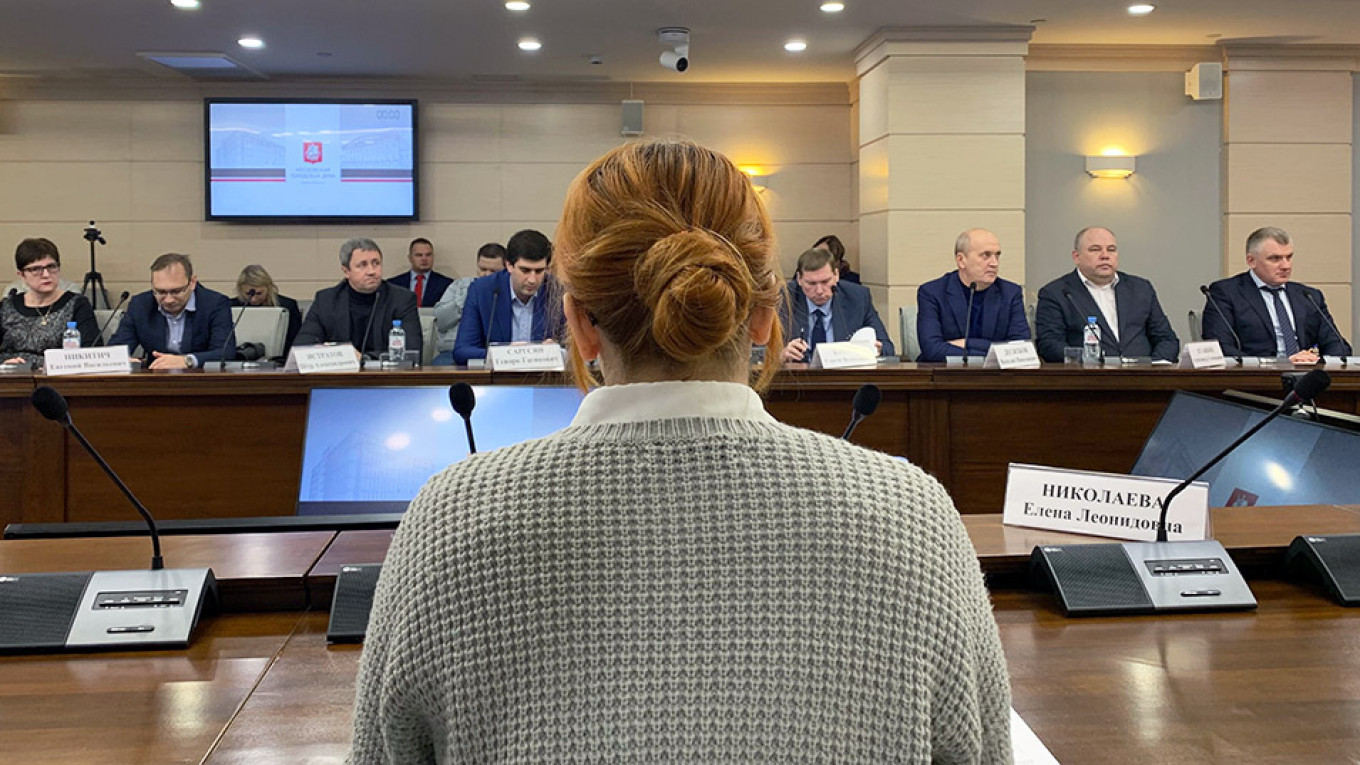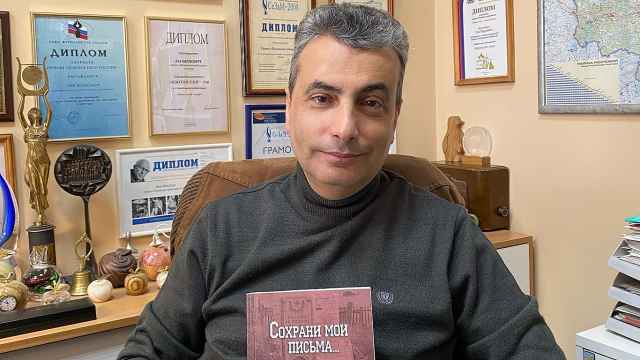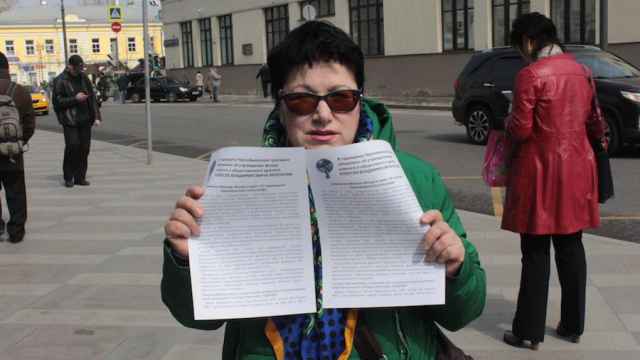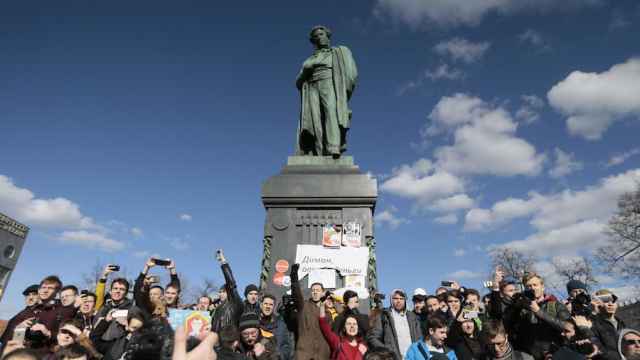With her elbow propped on her desk, Darya Besedina rests her head on her hand, losing herself in thought.
“It’s all very sad,” she says.
On the last Thursday in January in Moscow, when the sun rarely sneaks through the grey sky and spring is still a long way off, anyone could get depressed.
But for Besedina, a 31-year-old deputy in the Moscow City Duma, it’s not the mid-winter blues that are getting her down. She has just left a two-hour round table discussion on a controversial new highway that would be the third to encircle the Russian capital. Within minutes, the discussion had descended into mayhem.
When one resident spoke about the planned construction, a dozen others shouted him down, claiming he was a government plant who doesn’t actually live in any of the affected neighborhoods. After a deputy close to the cause backed those residents, the original speaker invited the deputy to step outside.
Later, another deputy and a guest speaker did step outside, only for the lawmaker to quickly return and demand that police escort the speaker out of the building, claiming he had taken a swing.
“It was a pretty ridiculous exercise,” Besedina said.
The young lawmaker is new to the City Duma. Elected in September, she is one of the deputies who rode a wave of protests over the summer that erupted after election commission officials blocked a slew of opposition politicians from balloting.
Most of the barred politicians were associated with Russia’s most prominent opposition critic Alexei Navalny. So he decided to back anyone who wasn’t representing the ruling United Russia party — both officially or disguised as an independent — even if they weren’t his allies.
The strategy helped elect 20 opposition-minded candidates into the 45-seat Duma, with United Russia losing a third of its seats. Besedina, who represents the liberal Yabloko party, was one such candidate.
The road controversy fits her portfolio. A graduate of the Moscow Institute of Architecture, Besedina has spent the past six years working for Gorodskiye Proyekty — City Projects — an organization aiming to make Moscow a more sustainable city.
When the highway was announced in late 2018, residents were up in arms. Some would have to leave their homes; others worried that it would pass next to a radioactive dump on the Moscow River and unearth dangerous particles.
After the election, an opposition deputy representing one of the affected neighborhoods organized round table discussions on the plan. But as is so often the case in Russia, as anger mounted, the ruling authorities co-opted the cause in a cynical ploy, Besedina said. Now, two United Russia deputies, Lyudmila Stebenkova and Stepan Orlov, have decided to organize round table discussions of their own.
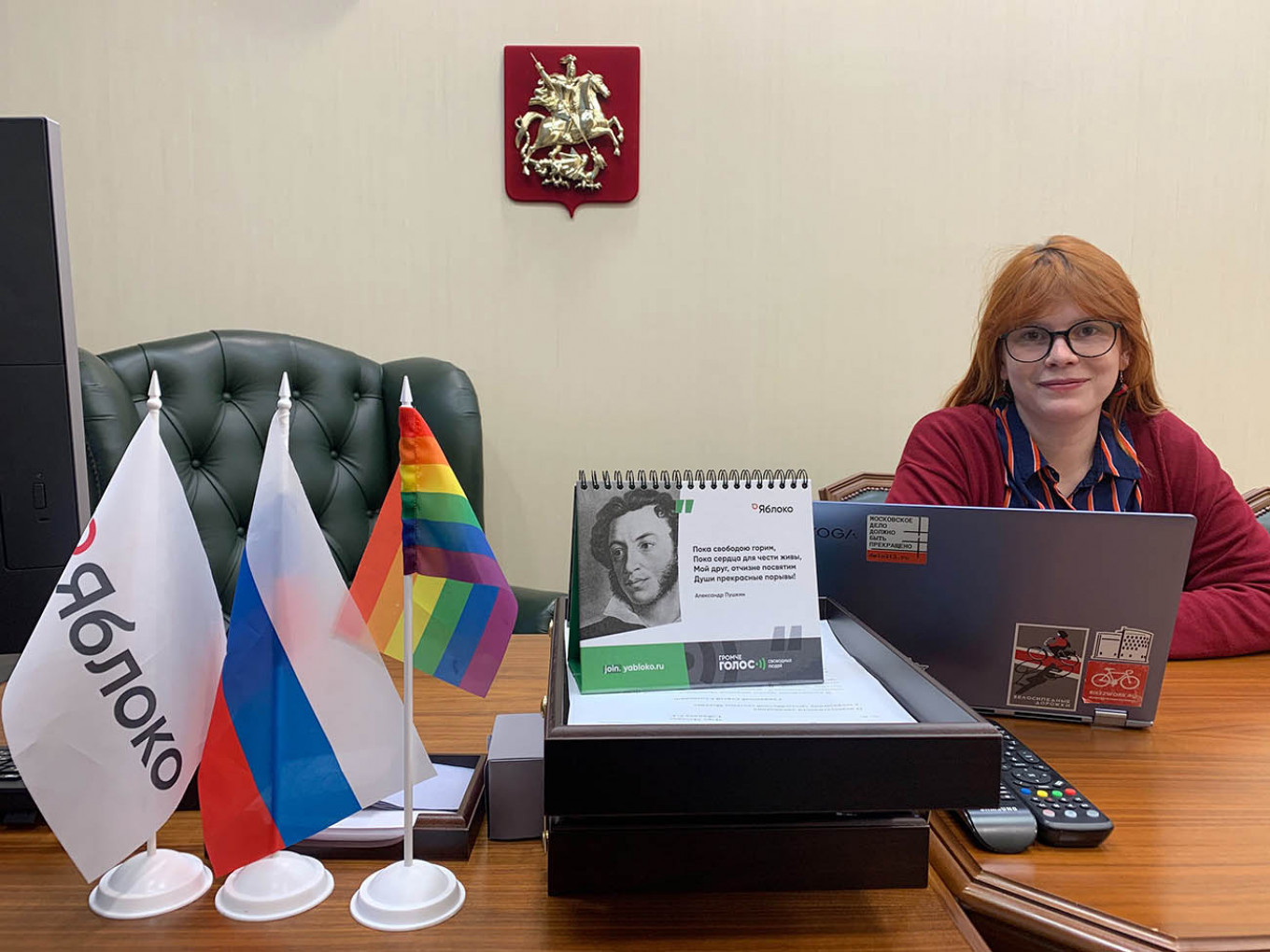
“They wrested control of the conversation from the opposition,” Besedina said, explaining that the deputies are not questioning the original decision itself, but are aiming to push the project through while pacifying disgruntled activists by allowing for some “cosmetic changes.”
“It’s a common tactic,” she added. “And if you complain, they say: ‘What, you don’t want to find a solution?’”
On Thursday, when it was her turn to speak, Besedina began by arguing that the highway need not be built at all. Stebenkova mocked her.
“I know your position: You want to put everyone on scooters and bicycles,” she said.
“Do not interrupt me!” Besedina responded.
As she continued, Stebenkova took a phone call.
Later, in an interview in her Duma office, Besedina, who argues that roads do not solve traffic problems and that the new highway is a corrupt money-making scheme, did not hold out much hope that the project will be halted.
Despite United Russia’s significant losses in September, she noted that the party nonetheless retains a comfortable majority — meaning it can push through its policies without much resistance.
The result is that much of what Besedina, a dedicated liberal, has attempted over her first months in office has been based on principle rather than the belief that it will actually be realized.
In the City Duma’s first session after the September election, she called for the dissolution of the current governing body, given that a number of opposition candidates had been summarily blocked from standing for election. Unsurprisingly, that proposal was overwhelmingly denied.
In December, during Moscow Mayor Sergei Sobyanin’s annual address to deputies on City Hall’s results for the year, City Duma speaker Alexei Shaposhnikov, of United Russia, formally denied Besedina an opportunity to ask the mayor a question. She asked anyway, despite a United Russia deputy standing in front of her: Did Sobyanin feel any guilt that people were imprisoned for their roles in the summer’s protests?
And she called for a public hearing on City Hall’s budget. To her credit, the hearing was approved — but in the end only seven deputies voted against the proposed spending.
“City Hall makes all of the decisions in this city, then passes them down to United Russia deputies in the City Duma for rubber-stamping,” Besedina said.
Yet even if affecting tangible change in the short-term is futile, the lawmaker said she wants to “show people that an alternative is possible.”
After she was sworn into office, Besedina turned down her deputy’s car. Instead she bikes to work, even in the snow.
On her desk sits another outlier: a rainbow flag, the only one she knows of in a Russian official’s office.
She also eschews the flashy suits and ostentatious jewelry donned by many deputies. On Thursday, she looked more like a graduate student than an official, wearing a beige sweater over a button-down shirt and novelty holiday socks peeking out over black leather brogues with colorful checkered shoelaces.
Since her election, Besedina, who spent two years in Germany as a teenager, has attracted the attention of pro-Kremlin media. In late December, for instance, Tsargrad TV published an article outlining her “embarrassing mistakes” in the Russian language. Besedina’s voice, which sounds even younger than her already-young age, sometimes falters when she speaks in public.
For the liberal deputy, though, the more publicity the better.
“More and more people are getting pulled into politics these days,” she said. “At some point there will be critical mass and everything will change.”
“Although,” she added after a pause, “that’s not a given.”
A Message from The Moscow Times:
Dear readers,
We are facing unprecedented challenges. Russia's Prosecutor General's Office has designated The Moscow Times as an "undesirable" organization, criminalizing our work and putting our staff at risk of prosecution. This follows our earlier unjust labeling as a "foreign agent."
These actions are direct attempts to silence independent journalism in Russia. The authorities claim our work "discredits the decisions of the Russian leadership." We see things differently: we strive to provide accurate, unbiased reporting on Russia.
We, the journalists of The Moscow Times, refuse to be silenced. But to continue our work, we need your help.
Your support, no matter how small, makes a world of difference. If you can, please support us monthly starting from just $2. It's quick to set up, and every contribution makes a significant impact.
By supporting The Moscow Times, you're defending open, independent journalism in the face of repression. Thank you for standing with us.
Remind me later.



